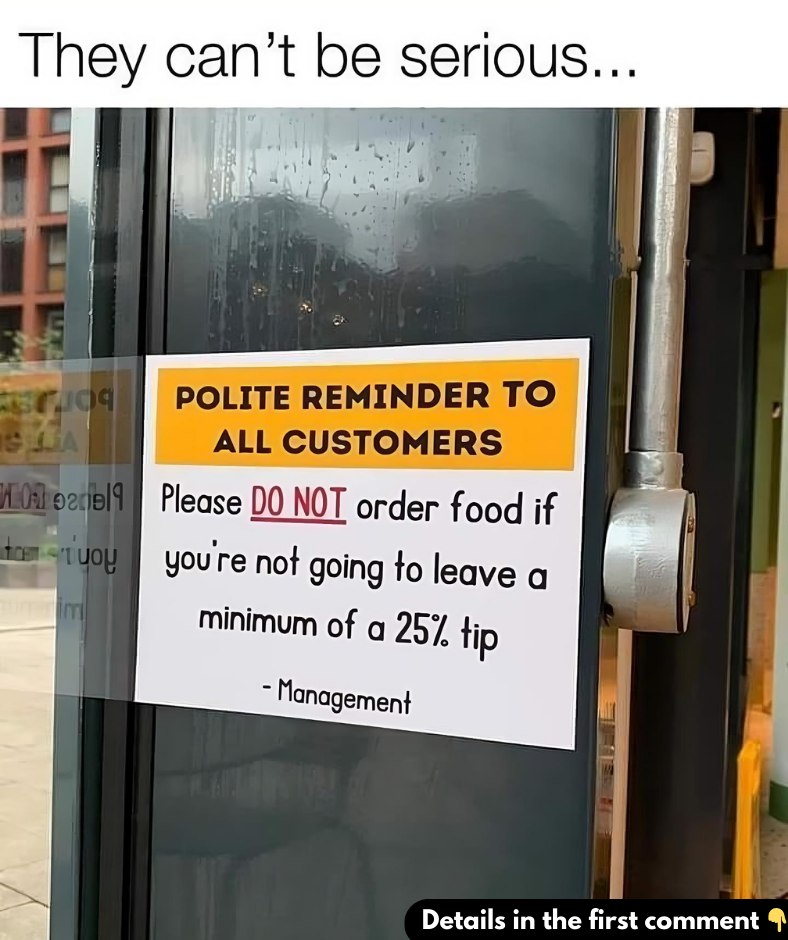Tipping has long been a hallmark of service culture in the United States, initially conceived as a way to reward outstanding service. Over time, however, this practice has evolved into a polarizing issue, raising concerns about its fairness and appropriateness in modern society. What was once a genuine gesture of appreciation now often feels like an obligation, sparking debates about its relevance and whether it benefits all parties involved.
The practice of tipping traces its roots to 19th-century Europe, where it was introduced as a way to reward service workers who delivered exceptional performance. When it crossed the Atlantic to the U.S., tipping began as a bonus for outstanding service, a system that allowed customers to express gratitude and gave workers a chance to earn extra income. Unfortunately, this tradition has drifted far from its original intent. Today, tipping is often less about acknowledging quality and more about supplementing inadequate wages in industries where employers fail to provide fair compensation.

Dustin Anderson, a vocal critic of modern tipping culture, has recently reignited the debate with his candid take on the subject. In a viral social media post, he posed a thought-provoking question: “When was the last time you got exceptional service, anywhere?” Anderson argued that tipping has shifted from being a reward for excellence to an automatic expectation, often disconnected from the quality of service provided. “They bring you the bill and just expect you to add 20 or 25 percent,” he stated, reflecting the frustration of many consumers who feel pressured into tipping regardless of the experience.
Anderson’s critique struck a chord with the public. Supporters of his stance described tipping as “out of control” and questioned why consumers are expected to tip for services such as coffee orders or takeout meals, where interactions with staff are minimal. His comments brought to light the growing tension between customers and the expectation to tip, even in circumstances where it seems unwarranted.
Despite such frustrations, tipping remains a cornerstone of income for many workers in the service industry. For servers, bartenders, and delivery drivers, tips are not merely bonuses but essential earnings that help them cover basic living expenses. A former server weighed in on the discussion, highlighting a little-known practice in the industry: tipping out, which requires servers to share their tips with support staff, such as bussers and bartenders. “We had to pay to serve people who didn’t tip,” she explained, underscoring how deeply ingrained tipping is in the service economy. Others defending tipping pointed out the physical and emotional toll of service jobs, urging critics to experience the challenges of these roles before dismissing the practice entirely.
Modern tipping culture, however, has expanded far beyond its original purpose. Consumers are increasingly confronted with tipping requests at coffee shops, fast-food counters, and even self-checkout machines. This constant solicitation often feels excessive and burdensome, leaving customers questioning the validity of tipping in such situations. Delivery services have added another layer of complexity, with viral stories of drivers mishandling or refusing orders over low tips, further fueling the debate.
One particularly divisive moment occurred when a woman justified not tipping her home-based hairdresser, stating, “She doesn’t commute or have overhead costs. How many people are making $40 an hour?” While some agreed with her reasoning, others argued that tipping remains essential in service-based professions where workers depend on gratuities to supplement inconsistent incomes.
The history of tipping in the United States also reveals troubling origins rooted in racial inequality. After the abolition of slavery, some employers used tipping as a justification for paying newly freed Black workers little to nothing, embedding systemic discrimination into the practice. Women of color were disproportionately affected, and while racial dynamics have shifted over time, the legacy of financial instability for tipped workers persists. Today, many workers in the U.S. still earn less than minimum wage and rely heavily on tips to make ends meet, placing an unfair burden on customers to subsidize inadequate wages.
Interestingly, the tipping model, while originating in Europe, has largely been abandoned there in favor of a more equitable system. In many European countries, service charges are included in the bill, and workers are paid fair wages by their employers. This approach eliminates the ambiguity surrounding tipping, ensuring employees are compensated fairly without relying on customer generosity. In stark contrast, the U.S. continues to embrace tipping, even in scenarios where it may not be warranted, prompting questions about why the nation remains tied to a model other regions have successfully moved beyond.
As tipping culture in the U.S. reaches a crossroads, solutions to fix the system are widely debated. Some advocate for eliminating tipping altogether, urging employers to pay fair wages and incorporate service charges into prices. Others propose reserving tipping exclusively for instances of exceptional service, returning the practice to its original purpose. At its core, this debate centers on fairness—ensuring customers are not pressured into tipping while workers receive consistent and livable wages.
The path forward requires addressing the root issues of low wages and unclear expectations. A shift toward transparent pricing and employer accountability could create a system that benefits everyone involved, reducing the reliance on gratuities to bridge financial gaps. Until these changes are implemented, however, tipping will remain a divisive topic, reflecting broader societal tensions about fairness, equity, and the value of labor.
In conclusion, what began as a simple token of gratitude has evolved into a contentious and complex practice. Dustin Anderson’s viral critique has reignited conversations about the flaws in modern tipping culture and the urgent need for systemic change. By focusing on the root problems and advocating for a more equitable system, society can move toward a fairer approach that aligns with the values of modern times.





